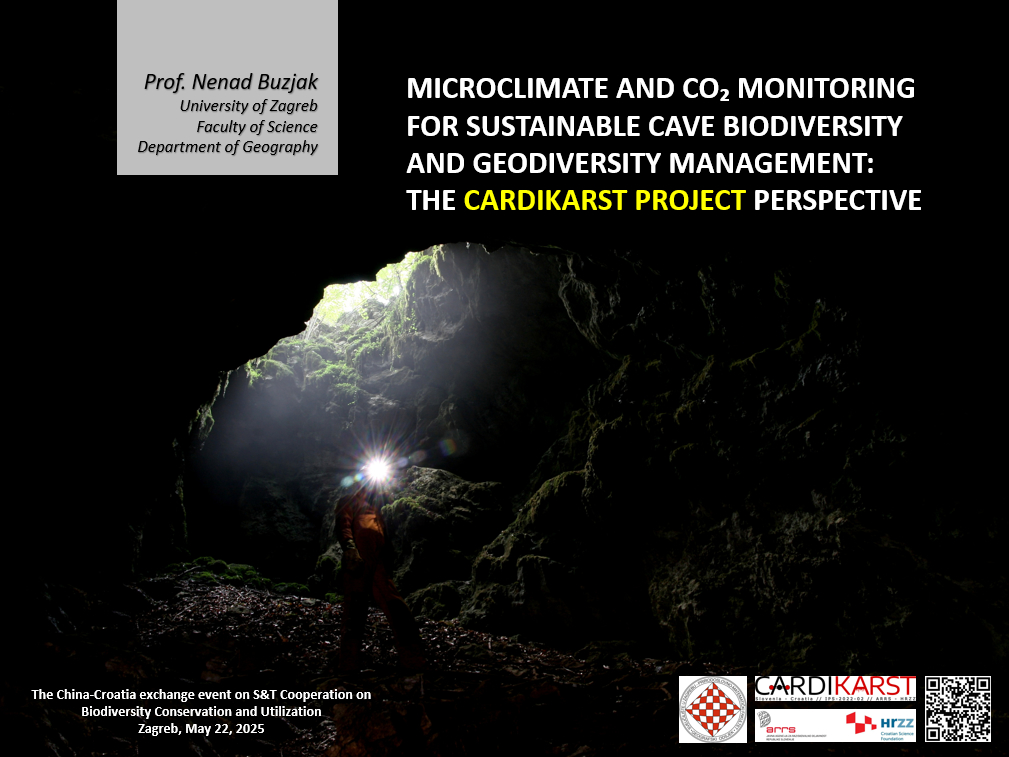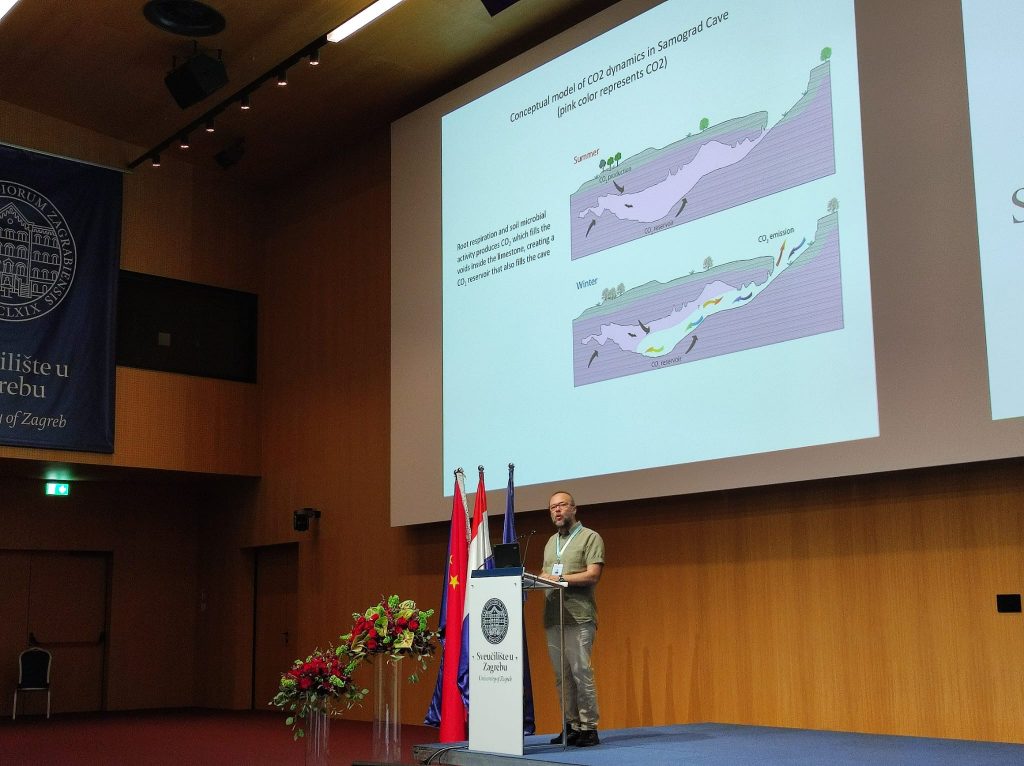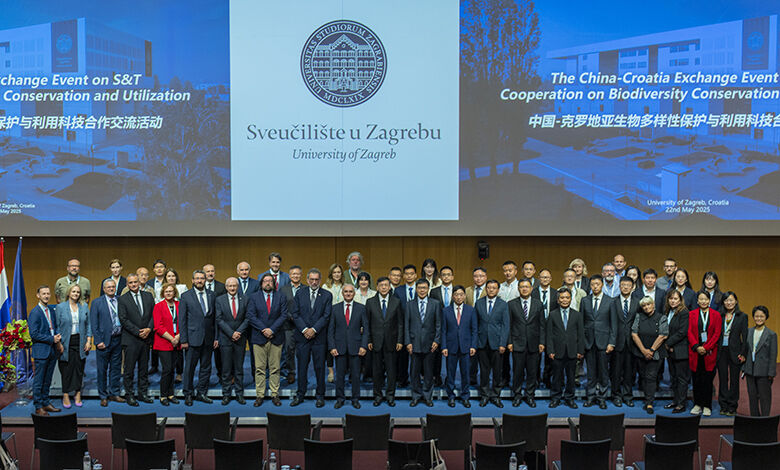On May 22, 2025, Prof. Nenad Buzjak from the Department of Geography, Faculty of Science, University of Zagreb, delivered an invited lecture at the “China–Croatia Exchange Event on Science and Technology Cooperation in Biodiversity Conservation and Utilization” held at the University of Zagreb. The event was attended by a high-level delegation led by the Minister of Science and Technology of the People’s Republic of China.
Prof. Buzjak’s lecture, titled “Microclimate and CO₂ Monitoring for Sustainable Cave Biodiversity and Geodiversity Management: The CARDIKARST Project Perspective”, highlighted key insights and preliminary results from the Croatian–Slovenian bilateral research project CARDIKARST (2022–2026).
The presentation emphasized:
- the critical role of cave microclimate monitoring in establishing thermal, humidity, and CO₂ baselines necessary for conservation and sustainable use;
- how geodiversity supports functional biodiversity through abiotic filtering, especially in karst environments;
- the importance of including geodiversity in nature conservation and climate adaptation frameworks;
- preliminary findings from the Samograd Cave study site, including conceptual models of CO₂ stratification and temperature-driven air circulation.
CARDIKARST contributes to a better understanding of subterranean systems as natural climate refugia and ecosystem service providers. Prof. Buzjak stressed the need for geodiversity and microclimate data to be systematically integrated into environmental monitoring and conservation planning, particularly under changing climatic conditions.
The event provided a valuable opportunity to present Croatian research in karst systems and to explore potential future collaborations in the field of geoecology and cave conservation with Chinese partners.
Photo: Matej Blatnik, Branko Nađ



